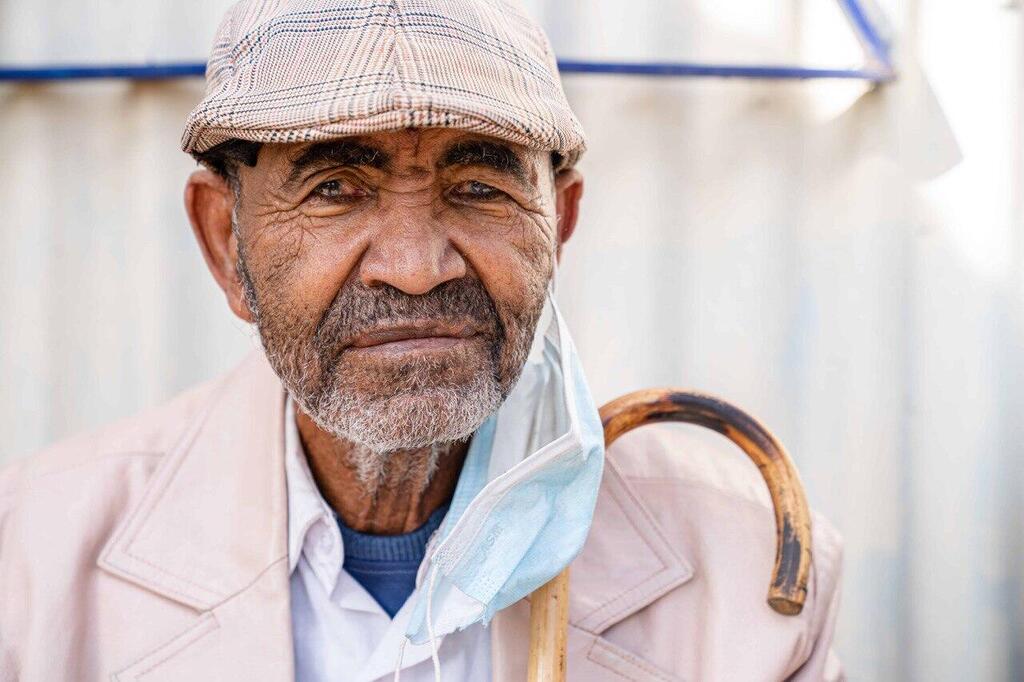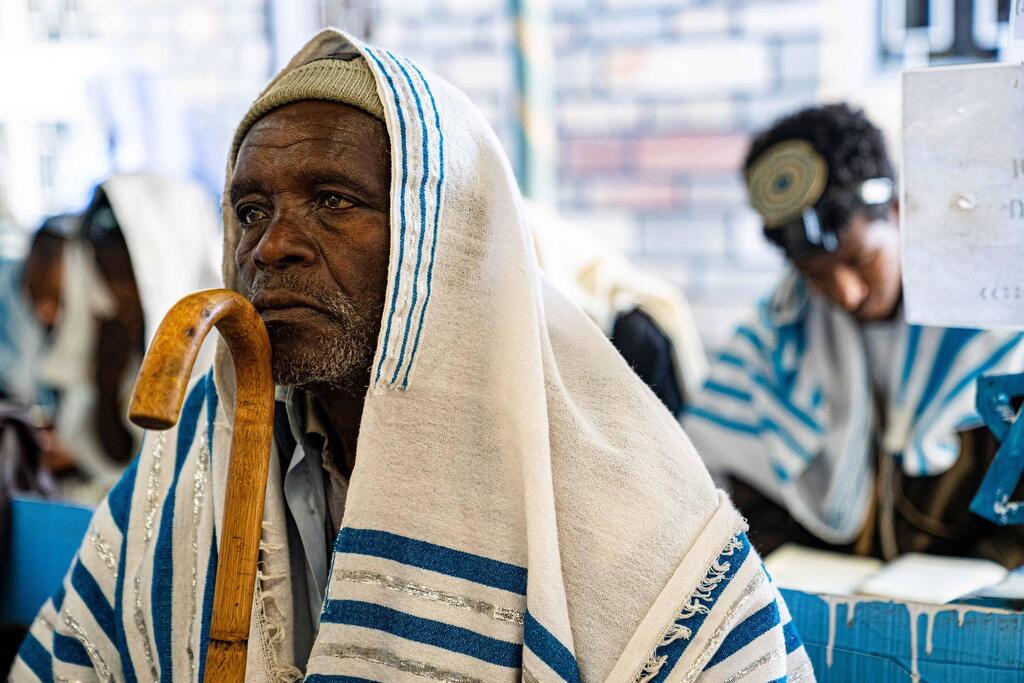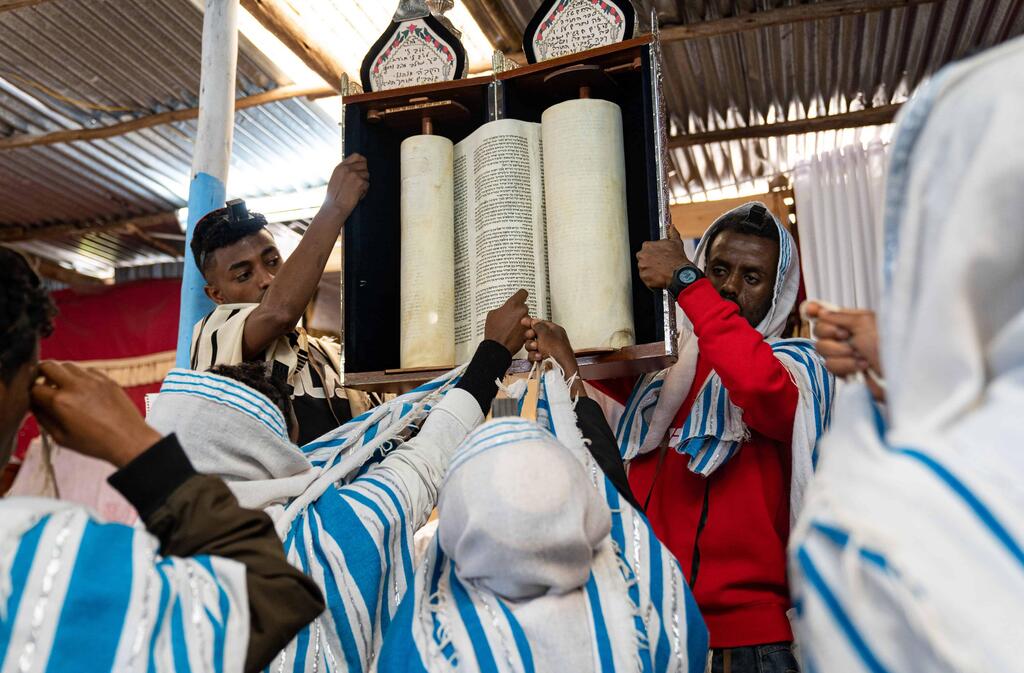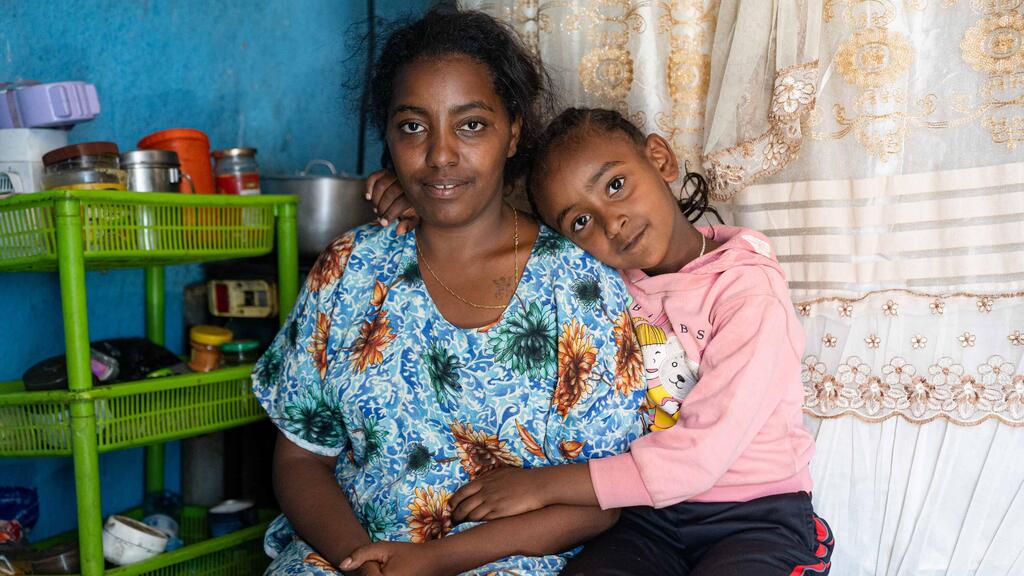Approximately 600 people currently reside in camps in Gondar and Addis Ababa, Ethiopia, waiting their status for Aliyah.
Most of them have family members that made Aliyah years ago, while they've been left behind — they are known as the Falash Mura.
Eighty-year-old Marau Bella Bogle left his village and arrived in Addis Ababa with hopes of immigrating to Israel during Operation Solomon in the mid-90s. Two of his sisters and his brother immigrated to Israel 30 years prior, and he struggles to understand why he's been forgotten.
"I didn't plan on arriving at the camp and living here", he says. "But I no longer have a place to return to. Even today I still can't understand why my siblings succeeded in making Aliyah to Israel, and I'm stuck here. The worst part is that we don't get answers. We're suffering without knowing why. Why didn't they take us? I feel like a prisoner that's been jailed with no court ruling in a country he doesn't want to be in. My home is in Israel."
Bogle and his seven children all fit the governmental criteria and hope to immigrate to Israel as soon as possible.
About three months ago, the community in Addis Ababa and Gondar received some good news: The government has deemed them eligible to come to Israel after years at waiting camps. Following the decision, a delegation from the Interior Ministry arrived earlier this week in Addis Ababa to interview and evaluate the residents to ensure they're eligible under the conditions stipulated by Government Decision 713 that passed last November.
5 View gallery
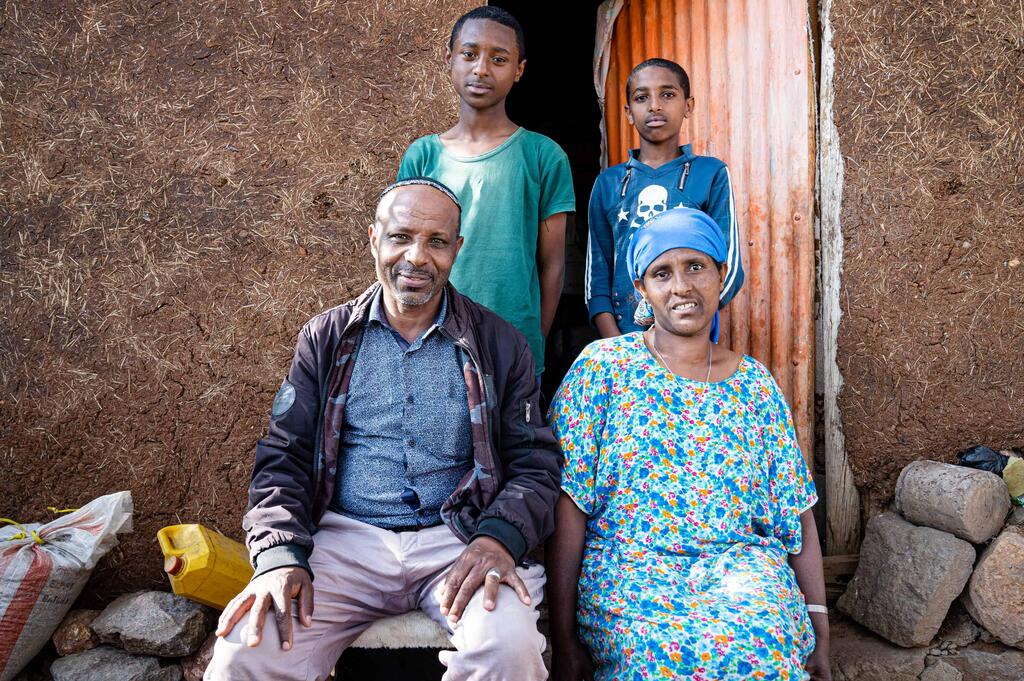

Members of the Falash Mura community at a waiting camp in Ethiopia
(Photo: Ori Aviram)
This decision grants 3,000 individuals who have first-degree family members in Israel to immigrate, including their partners and children, over the span of two years as part of Operation Zur Israel. Many of those pending aren't considered Jewish by Israel's Chief Rabbinate but are rather categorized as "seed of Israel", and go through conversion upon arrival to Israel.
The affair has stirred a controversy within Israeli society that has even reached the Supreme Court, which has ruled to halt immigration after an immigration group petitioned against the move, claiming that most of those waiting in the camps have no connection to Judaism.
Meanwhile, hundreds are hoping that one day their dream of coming to Israel would come true.
Ori Aviram spent two weeks amongst one such community in Addis Ababa to document their struggle.
Marau, 80, is not a rare case. Tarafa Beimar has also surpassed 80 years of age and tells with grief of his lost hopes to move to Israel.
"In the early 90s, I fought in the civil war in Ethiopia", he says. "I was away from home for months, and when I returned I found an empty house. My siblings immigrated to Israel, and only I stayed behind. Over the years, I tried to get answers, but time went by and I gave up."
Beimar prays at the synagogue daily and lives in a small room with his son. "This situation is frustrating. Today I understand that I won't make it to Israel", he says.
"The community centers around the synagogue", says Aviram. "It's located in a small alley, and only someone who knows where to look will find it. The synagogue is their place of worship, but also the community's meeting spot. They celebrate the holidays there, eat meals together."
Most members of the community in Addis Ababa made it to Israel, but 600 remain behind.
In Gondar, however, there are thousands still waiting. Many of them saw their family and friends leave for Israel.
Eilam Naga, 28, says that her heart was broken when her parents, grandparents, and siblings left for Israel as part of Operation Zur Israel six months ago, while she was left behind with no explanation.
"I was left here alone with my daughter, and I've been hopeless ever since", says Naga. "We're left just the two of us... I can't get myself to work, I can't function. I turned everywhere asking for help, but right now, I live in uncertainty about me and my daughter's future."
However, others like camp residents like Abeza still harbor a bit of faith.
"I believe one day it'll happen, our turn will come. It's my dream. It's the thought I wake up in the morning and go to bed with."


